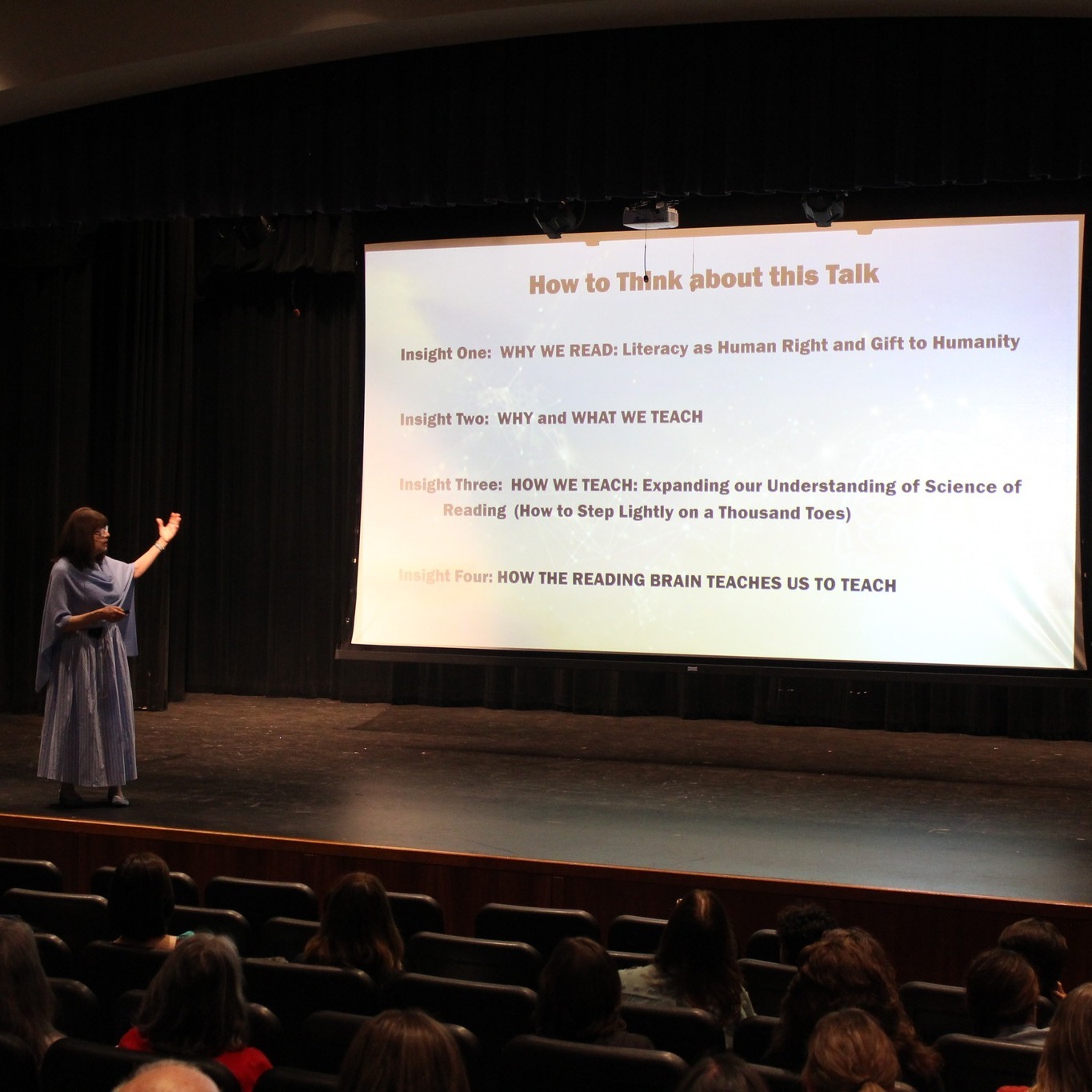©2026 Education Success Foundation. All Rights Reserved. Privacy Policy

On the evening of Monday, May 12, the Norman Howard School in Rochester, NY, became a vibrant hub for educators, literacy specialists, and advocates of reading. The spotlight was on Dr. Maryanne Wolf, renowned author, scholar, and expert in the science of reading, as she lead a powerful discussion on the evolving nature of literacy in today’s world.
The event, titled “Revisiting Reading: Teaching Foundational Literacy Skills & Lifelong Reading Abilities,” offered a thought-provoking exploration of how foundational skills, fluency, and deep comprehension must evolve to meet the needs of 21st-century learners—especially those who struggle with reading or come from multilingual backgrounds.
Drawing from cutting-edge research in cognitive neuroscience, Dr. Wolf presented a compelling case for expanding how we teach reading. Her talk emphasized that while phonics and fluency remain critical, they must be integrated with strategies that nurture reflective, analytical, and empathic reading—skills that are vital not only for academic success but for lifelong learning and civic engagement.
A central theme of the evening was how the science of the reading brain can unify diverse instructional approaches. Dr. Wolf skillfully bridged the gap between often polarized methods of literacy instruction by showing how neuroscience supports a balanced, evidence-based framework. Her insights offered educators a fresh lens through which to view early literacy development and remediation.
For struggling readers and multilingual children, this research-backed approach is not just informative—it’s transformative. Dr. Wolf illustrated how targeted instruction, informed by how the brain processes text, can empower students to overcome barriers and thrive as readers.
Perhaps one of the most compelling sections of the talk dealt with the impact of digital culture on literacy. As reading habits shift toward screen-based content, Dr. Wolf shared new findings on how digital media affects attention spans, comprehension, and critical thinking. While acknowledging the advantages of technology, she urged educators to cultivate practices that encourage deep reading—the kind that fosters empathy, insight, and sustained reflection.
Her strategies for integrating mindful reading into modern classrooms resonated with the audience, offering a roadmap to reclaim the cognitive benefits of traditional reading in a fast-paced, digital world.
This event drew a diverse crowd of professionals, including:
Reading and Special Education Teachers
School and District Leaders
Literacy Specialists and Educational Evaluators
Community-based Providers
Parents and caregivers of struggling or diverse learners
Each attendee walked away with practical, research-informed strategies to bring back to their classrooms, schools, and homes.
Dr. Wolf’s presentation was more than just an academic lecture—it was a call to action for anyone invested in the future of literacy. By combining science, heart, and practical wisdom, she challenged us to rethink how we teach reading and how we support students in becoming thoughtful, engaged readers for life.
✨ Thank you to everyone who joined us for this inspiring evening, and to Canandaigua National Bank for sponsoring. Let’s keep the conversation going—and keep literacy alight.